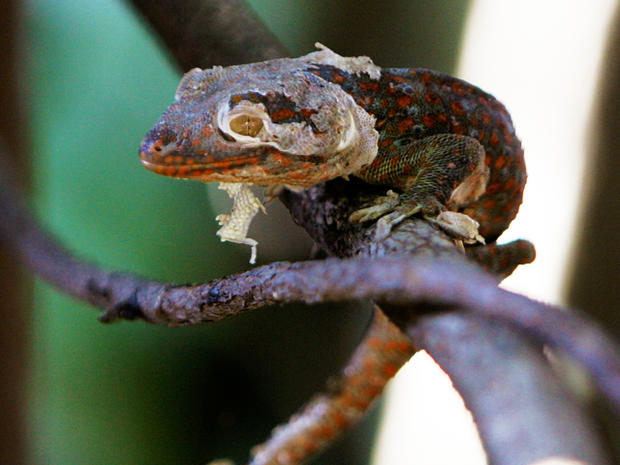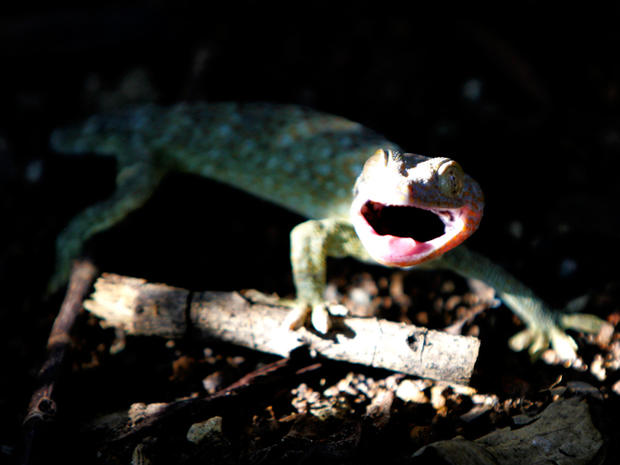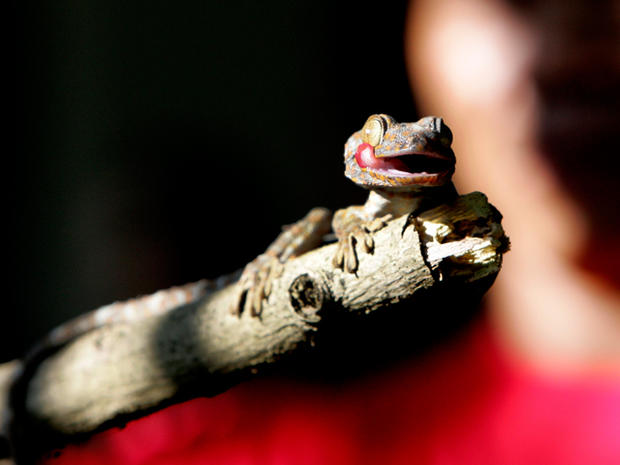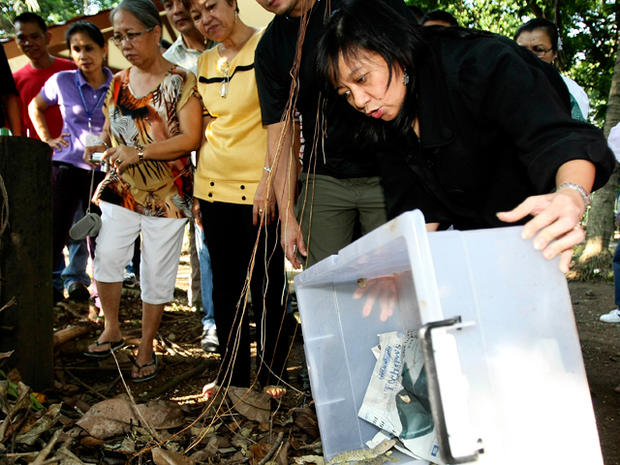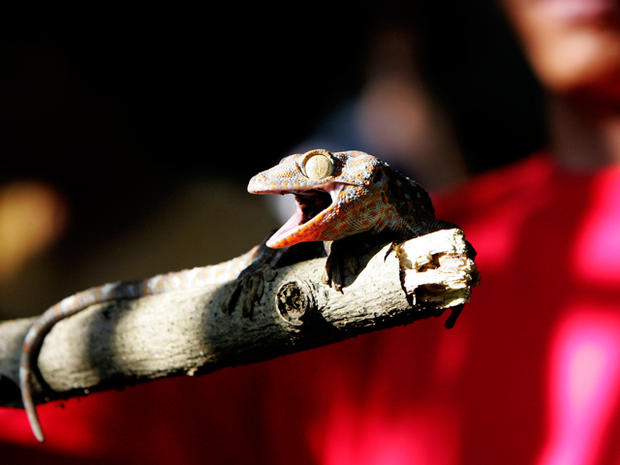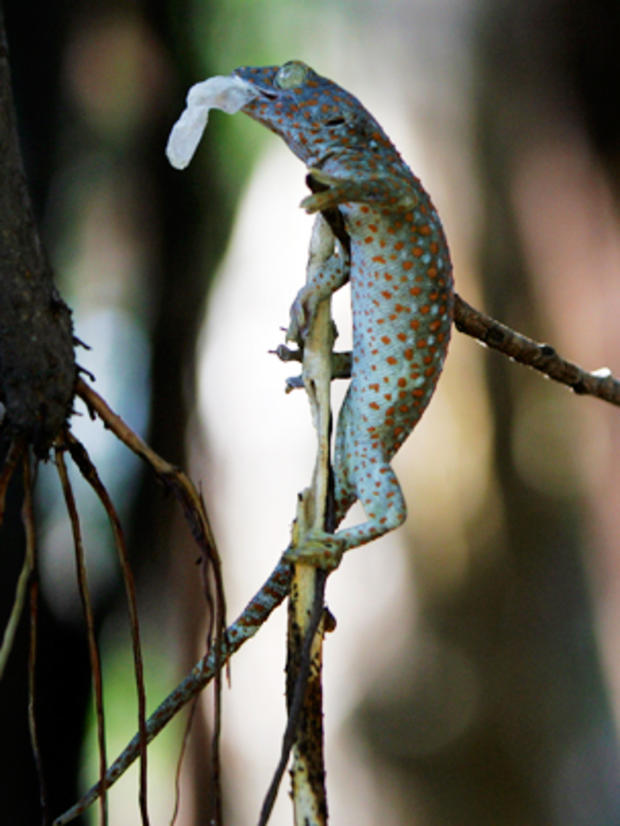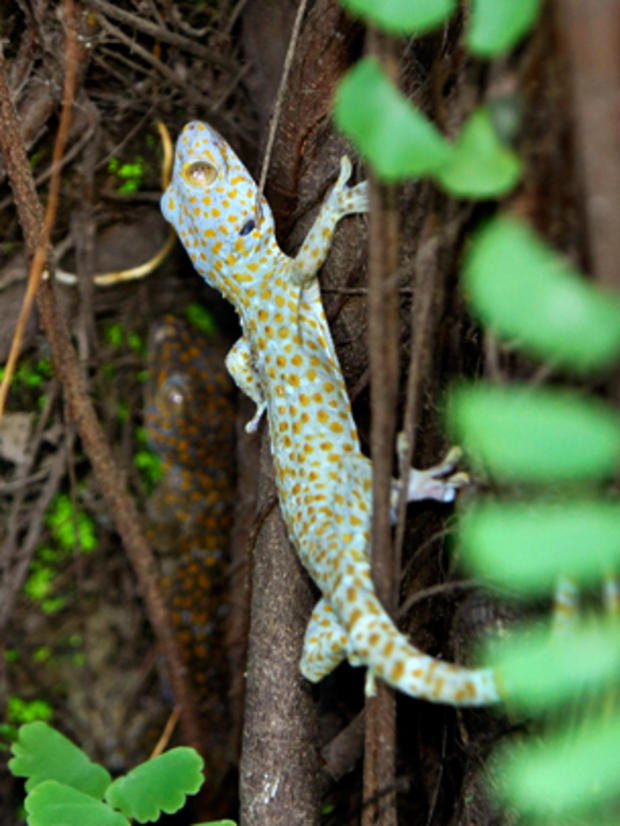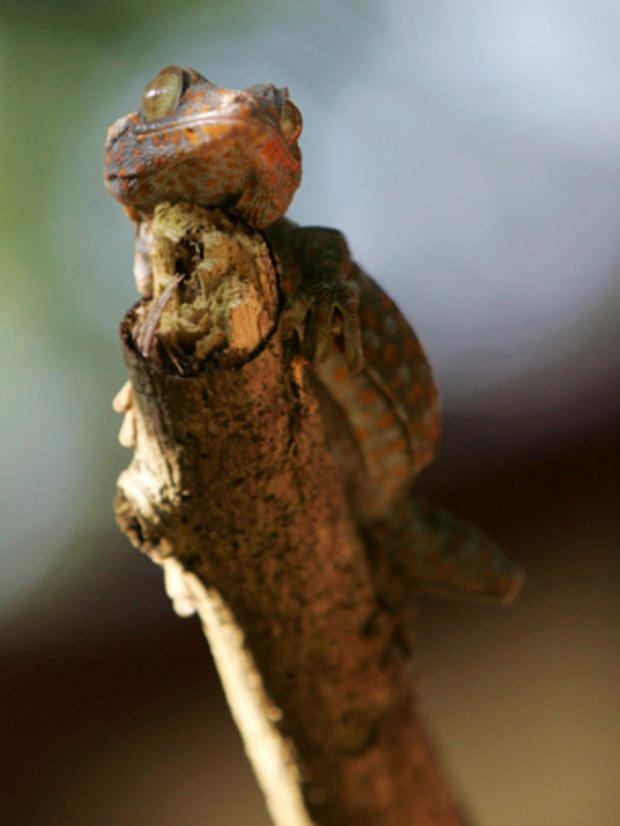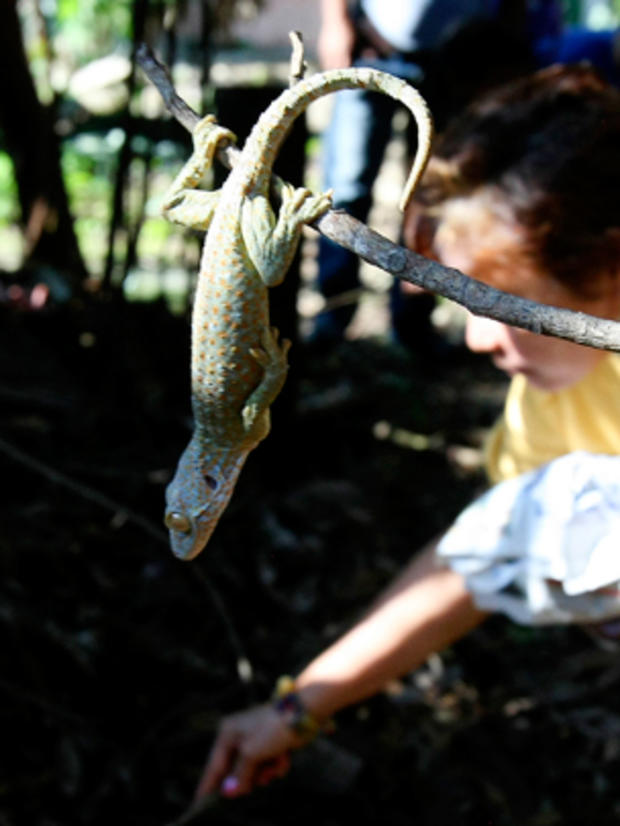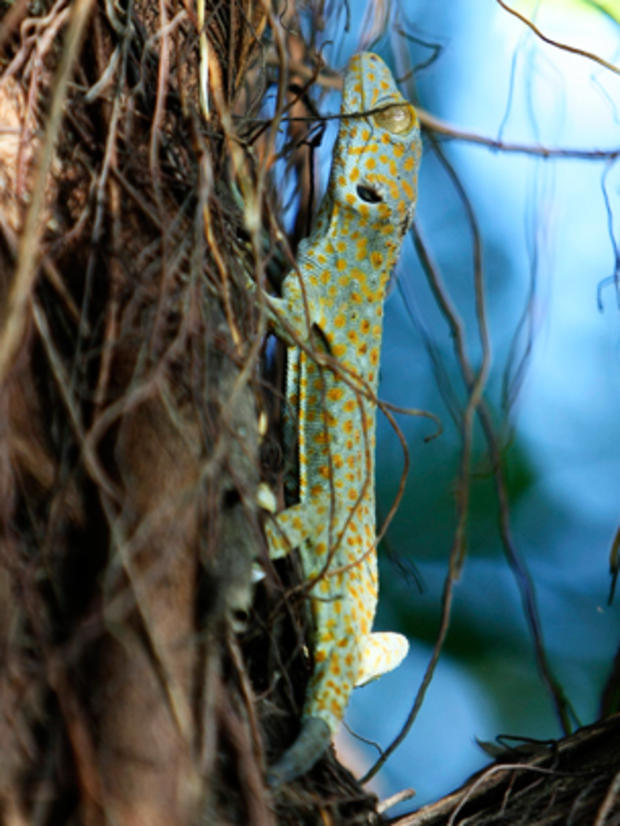Geckos: False AIDS treatment in Asia
We've heard of all sorts of homeopathic treatments and do-it-yourself cures - but geckos? These wall-climbing reptiles found in tropical countries are being exported at alarming rates from the Philippines to Malaysia, China and South Korea, for use as medicine, the Associated Press reports. Asian folklore says that in dried and pulverized form, geckos can be used to treat asthma, AIDS, cancer, tuberculosis and impotence. But health officials say their use as medicine has no scientific basis and could be dangerous because they keep patients from seeking proper treatment for their diseases.
What do these so-called cure-all creatures look like? Keep clicking to see photos of the carnivorous lizards...
A gecko crawls towards a tree as it is released into the sprawling compound of the Parks and Wildlife office at suburban Quezon city east of Manila, Philippines.
Geckos are carnivorous, nocturnal reptiles from the family Gekkonidae that are found in tropical countries, including the Philippines.
Theresa Mundita Lim, Director of Protected Areas and Wildlife Bureau, releases recently seized geckos into its compound in the Philippines.
According to Lim, geckos in the wild grow up to 200 grams (7 ounces). Those fattened in captivity can grow only up to 300 grams (10 ounces).
Geckos are known for their sticky footpads that allow them to climb vertical surfaces, including glass.
Environmental officials have expressed alarm about the growing trade in the wall-climbing lizards in the Philippines. An 11-ounce (300-gram) gecko reportedly sells for at least 50,000 pesos ($1,160).
In folkloric tradition, geckos are not only dried and pulverized to use as medicine - there are also anecdotal accounts of the saliva or internal organs being collected, according to Lim.
Philippines' Parks and Wildlife staffers release recently seized geckos into its compound in the suburbs. Environment Secretary Ramon Paje earlier warned that collecting and trading geckos without permit can be punishable by up to four years in jail and a fine of up to 300,000 pesos ($6,900).
A healthy population of geckos is needed to regulate pests and maintain the fragile ecosystem, Paje said. Geckos feed on insects and worms. Larger species hunt small birds and rodents.
